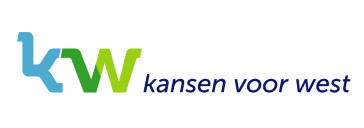Digital innovation in education – as in any other sector – is not only about developing and implementing novel ideas, but also about having these ideas effectively used as well as widely accepted and adopted, so that many students can benefit from innovations improving education. Effectiveness, transferability and scalability cannot be added afterwards; it must be integrated from the start in the design, development and implementation processes, as is proposed in the movement towards evidence-informed practice (EIP). The impact an educational innovation has on the values of various stakeholders is often overlooked. Value Sensitive Design (VSD) is an approach to integrate values in technological design. In this paper we discuss how EIP and VSD may be combined into an integrated approach to digital innovation in education, which we call value-informed innovation. This approach not only considers educational effectiveness, but also incorporates the innovation’s impact on human values, its scalability and transferability to other contexts. We illustrate the integrated approach with an example case of an educational innovation involving digital peer feedback.
DOCUMENT

This paper aims to address the research gap in ethical design frameworks for self-sovereign identity (SSI) solutions. We present a case study of value sensitive design (VSD) conceptual investigation applied in the context of SSI-based solutions for the sharing of medical credentials uNLock. We evaluate the applicability and quality of VSD application on the basis of 5 criteria. We validate these findings by comparing the results of the original report with the studies presenting empirically informed insights from the deployment of SSI solutions for the presentation of medical credentials. We identify a problem of “value branching” particular to SSI solutions that can lead to the overinflation of the set of relevant values. We outline the affordances and limitations of the conceptual VSD investigation in our case study. We further reflect on the limits of general SSI principles and argue that the ethical design of SSI solutions always requires context-specific evaluative frameworks.
LINK
In projects concerning big data, ethical questions need to be answered during the design process. In this paper the Value Sensitive Design method is applied in the context of data-driven health services aimed at disease prevention. It shows how Value Sensitive Design, with the use of a moral dialogue and an ethical matrix, can support the identifcation and operationalization of moral values that are at stake in the design of such services. It also shows that using this method can support meeting the requirements of the General Data Protection Regulation.
LINK
Door aanhoudende digitalisering nemen de mogelijkheden voor data-analyse toe. In de private sector wordt hier al veelvuldig gebruik van gemaakt, maar in de publieke sector is men nog voorzichtig. Er bestaat namelijk de kans dat publieke waarden in het geding komen. Zo ook in het veiligheidsdomein.Doel Dit promotieonderzoek kent drie doelen: Meer inzicht in hoe in het veiligheidsdomein besluiten worden genomen op basis van ‘harde’ data en ‘zachte’ contextgebonden informatie. Meer inzicht in de rol van de domeinexpert bij de inzet van datasystemen. Meer inzicht in welke competenties nodig zijn om datasystemen zorgvuldig in te zetten. Resultaten Na afloop van het onderzoek publiceren we hier de resultaten. In onderstaande podcast vertelt Wybren van Rij over zijn onderzoek en de lessen tot nu toe. Ook te vinden via je favoriete podcastapp (zoeken op Lessen uit #HUonderzoek). Looptijd 01 september 2020 - 30 juni 2024 Aanpak Dit onderzoek is kwalitatief van aard en wordt opgezet volgens Value Sensitive Design.
Om aandacht te schenken aan de kwaliteit van peer-feedback kunnen studenten in dit onderzoek de kwaliteit van de feedback die zij geven verbeteren met behulp van een Avatar. In die training geeft de student de Avatar feedback waarop de student feedback ontvangt op de gegeven feedback.

Binnen de Nederlandse publieke sector wordt in toenemende mate gebruik gemaakt van digitale applicaties. Het is echter niet altijd duidelijk welke ethische implicaties hierbij ontstaan en welke waarden in het systeem worden mee genomen. Vanuit de werkagenda waardengedreven digitaliseren wordt opgeroepen om een gezamenlijk begrip te ontwikkelen rondom publieke waarden bij digitalisering en wordt aan het werkveld gevraagd om te ondersteunen bij het ontwikkelen van instrumenten die inzicht geven in de mate waarin een systeem voldoet aan publieke waarden. In samenwerking met PublicSpaces is dit professional doctorate traject gestart om te voldoen aan deze vraag. Hierbij willen we het echter breder trekken voor zowel een wetenschappelijke als praktische bijdrage. Hierom wordt een toolbox ontwikkeld, bestaande uit a. Een methode voor het in kaart brengen van welke publieke waarden relevant zijn bij het ontwerpen van een digitale applicatie b. een bibliotheek aan code chunks en design patterns rondom deze publieke waarden om ontwikkelaars te assisteren bij het ontwikkelen van de applicatie. c. Instrumenten voor het evalueren van digitiale applicaties aan publieke waarden. Dit wordt gedaan in een iteratief proces op basis van Value Sensitive Design. Hierbij zal het project zich eerst focussen op het sub-domein AI en algoritmes om daarna te abstraheren naar bredere digitale applicaties. Hierbij is de voornaamste contributie van het onderzoek dat er een gestructureerde en valide methode ontstaat die gebruikt kan worden om publieke waarden te identificeren en operationaliseren naar de praktijk.